|
    
讣告
逝者 刘秀清因病医治无效,于2021年4月8号逝世,享年 81岁。家属定于2021年4月12号9:00时在 北京大学人民医院太平间 举行遗体告别仪式。特此讣告
家属泣告
2021年4月8号
刘治琳先生微信 2021年4月11日:“我是刘秀清的老伴,刘治琳。我沉痛地通知刘秀清在南开大学65届的同学们,4月8日凌晨3点多,她因剧烈呕吐,导致大脑大面积出血,经抡救无效,于当日中午12点40分去世。”
刘治琳先生来信 2021年4月11日:
我沉痛地通知亲友们,秀清突然去世。
4月8日凌晨3点多,秀清突然感到恶心,急忙到卫生间剧烈呕吐,她感到极度难受,大声喊叫,我的头太痛了,痛死我了,我脑梗了,快给我两片阿司匹林,她满头出冷汗。然后,她到马桶上大小便,这时,她还能自己用手纸擦鼻涕,接着她把头靠在马桶盖上休息,不一会儿,就闭上眼睛,低下了头。我呼唤她,没有了回应。她双手摊开,失去了知觉。儿子马上叫来救护车,把她送到海淀医院急诊室。这时她呼吸已经很困难,嘴里插上了管子吸痰,并开始输氧,然后去做CT。结果显示,颅内大面积出血,包括脑干部位。神精外科大夫诊断认为,很难作开颅手术。我们表示只有一线希望也要抢救。于是,把秀清转送到人民医院急诊科,经该院神外科专家诊断,也认为,颅内出血面积太大,不要做开颅手术了。如果做,也不会有更好的效果。就这样,秀清于12点44分心脏停止了跳动。
4月12日上午9点,在北京大学人民医院告别厅举行秀清遗体告别仪式。
刘秀清简历
刘秀清 女 1940年4月出生,北京市人。 7岁始受教於北池子小学,女十二中(贝满女中)。 1959年考入南开大学外语系英国语言文学专业, 入学后因病休学,次年病愈转入60级,是班上英语发音最好的同学之一,经常利用课余时间帮助其他同学纠正发音。1965年毕业后分配到哈尔滨外语专科学校任助教,1971年调入外交部系统外交人员服务局任中文秘书, 1979年转入部内任随员三等秘书、二等秘书。 2000年5月1日由局里退休.具体工作单位如下:
外国驻华大使馆 中国驻外使领馆
加拿大/澳大利亚/北也门/索马里/土耳其等,
驻瑞典大使馆
澳大利亚悉尼晨报驻京记者办事处.
驻加拿大大使馆
驻多伦多总领馆
外交部礼宾司

刘治琳先生的悼词
我永远怀念你—刘秀清
今天是2021年4月12日(星期一)上午9点
地点:北京大学人民医院遗体告别厅
首先,我要真诚感谢亲友们前来送别我的爱人,妻子,老伴—刘秀清。
4月8日凌晨3点多,秀清突然感到恶心,急忙到卫生间剧烈呕吐,她感到极度难受,大声喊叫,我的头太痛了,痛死我了,我脑梗了,快给我两片阿司匹林,她满头出冷汗。然后,她到马桶上大小便,这时,她还能自己用手纸擦鼻涕,接着她把头靠在马桶盖上休息,不一会儿,就闭上眼睛,低下了头。我呼唤她,没有了回应。她双手摊开,失去了知觉。儿子马上叫来救护车,把她送到海淀医院急诊室。这时她呼吸已经很困难,嘴里插上了管子吸痰,并开始输氧,然后去做CT。结果显示,颅内大面积出血,包括脑干部位。神精外科大夫诊断认为,很难作开颅手术。我们表示只有一线希望也要抢救。于是,把秀清转送到人民医院急诊科,经该院神外科专家诊断,也认为,颅内出血面积太大,不要做开颅手术了。如果做,也不会有更好的效果。就这样,秀清于12点44分心脏停止了跳动。从早晨3点多到中午12点44分,她就再也没有睁开过眼睛,再没有说过一句话,她丢下我,独自走了。
她离开的太仓促了,与我风风雨雨50多载,最亲近的人走了,我很失落。与我朝夕相处,耳鬓厮磨数十年,能知冷知热,说知心话,贴心话的话伴突然离去,一下子撕裂我的人生。
人无足赤,人无完人,包括神仙和皇帝。夫妻是最密切的人生伴侣,相处越久,越容易发现彼此的缺点和不足,难免有磕磕碰碰,拌拌嘴,甚至争吵。这就是生活,这很正常。一生相敬如宾的夫妻,我没有见过。
秀清1940年4月6日出生。6岁失去母亲,缺乏母爱。这种特殊的童年生活,造就了她独特的个性—自立,自理,极度勤俭节约,极度艰苦朴素的性格。她不追求吃喝打扮,严格自律,不贪便宜,不拿单位的一针一线,这是她的高尚美德。
秀清的一生是平凡而伟大的。高楼万丈平地起,都是靠一砖一瓦堆砌起来的。秀清就是那一块砖,那一块瓦。因为平凡而伟大,大多数人都不过如此。
秀清毕业于北京女十二中后,考入天津南开大学西方语言文学系。毕业后被分配到哈尔滨外专,黑龙大学外语系任教。1972年调入北京市外交人员服务局,先后在加拿大驻华大使馆,澳大利亚驻华大使馆和澳大利亚悉尼晨报驻华记者处任中文秘书。1980年被外交部派到中国驻瑞典大使馆任3等秘书。1983年,从瑞典调到中国驻加拿大大使馆工作,后又从使馆调到多伦多,参与了筹建中国驻多伦多总领事馆建馆先遣组工作。1985年回国后,先在外交部礼宾司工作,后重返外交人员服务局,在索马里驻华大使馆,土耳其驻华使馆武官处以及英国驻华大使馆任中文秘书,2000年退休。
儿子说,我妈的人生经历是丰富的,当过外交官,走了几个国家,不错了,知足吧!
我有愧于秀清的是。她独自一人在黑龙江大学,哺育了刚出生不久的儿子。在那个物质极度匮乏的年代,是何等的艰难,我遥不可及,没有长臂相助的能力。
我干了10年外交信使,每年都有200多天在国外出差,无暇照顾她。
1999年退休后,我长时间埋头撰写百国旅行记和国际热点问题评论,没能好好陪伴她。我说一声,请原谅!
秀清,你走了,解脱了,你在天国安息吧!
人生是短暂的,难料何时驾鹤西去。所以,我们都要加陪珍惜晚年生活,加倍呵护你的身边人!
刘治琳泣述
2021年4月12日星期一
   
刘秀清同学生前照片

刘秀清与小孙女, 2021年春节
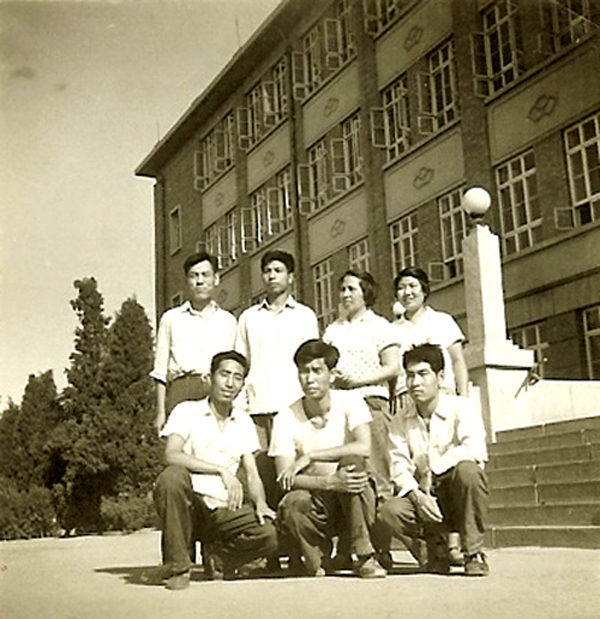
分组毕业照后排右一为刘秀清 1965
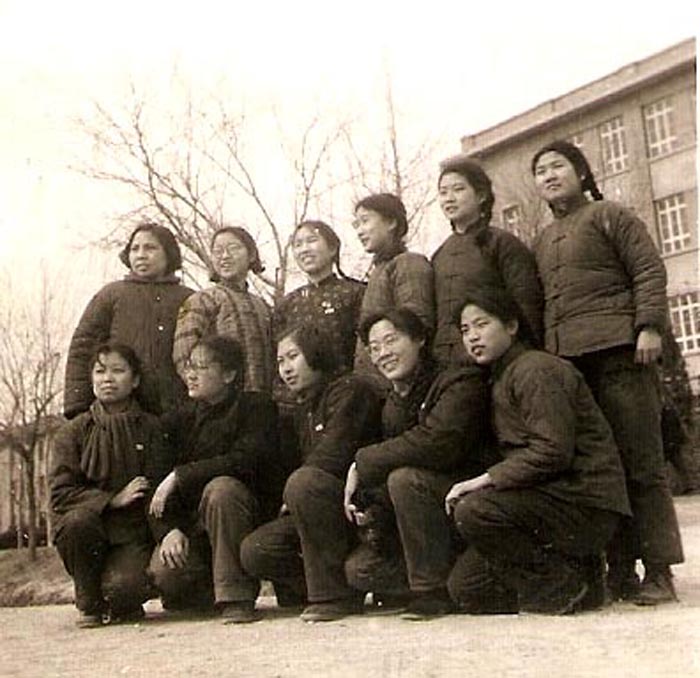
1960级女同学:前排左起张培华、许荣仙、孙学诗、蔡文美、王蕴茹
后排左起鲁琪、贺曼莉、庞鹤云、朱柏桐、谷启楠、刘秀清,1962年三八妇女节
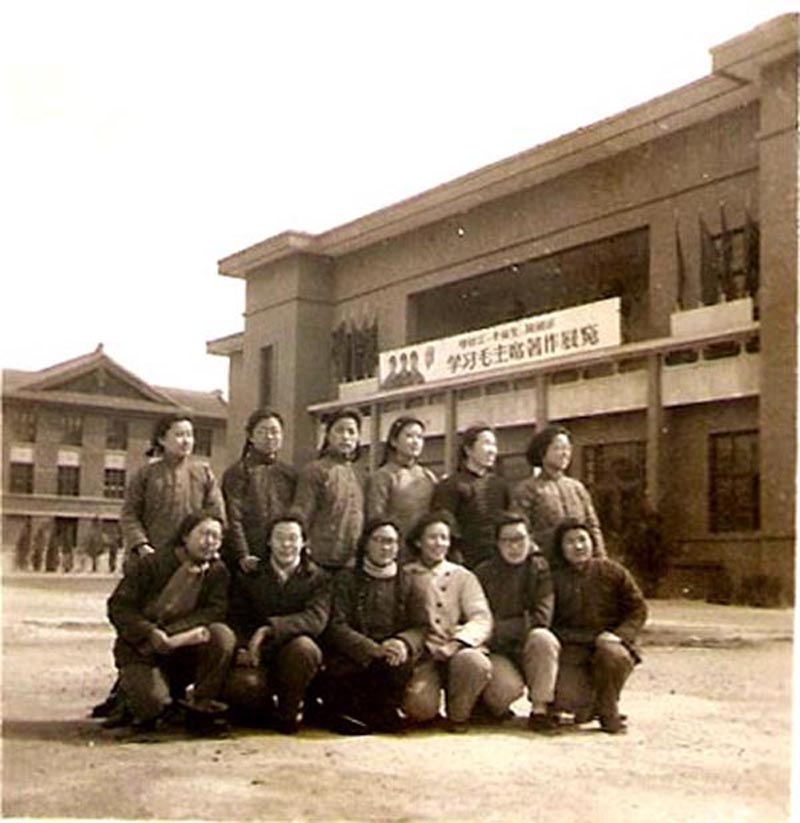
前排左起孙学诗、蔡文美、许荣仙、汪莹、杨新芝、刘秀清;
后排左起朱柏桐、张培华、王蕴茹、谷启楠、庞鹤云、贺曼莉, 小礼堂前,early 60s
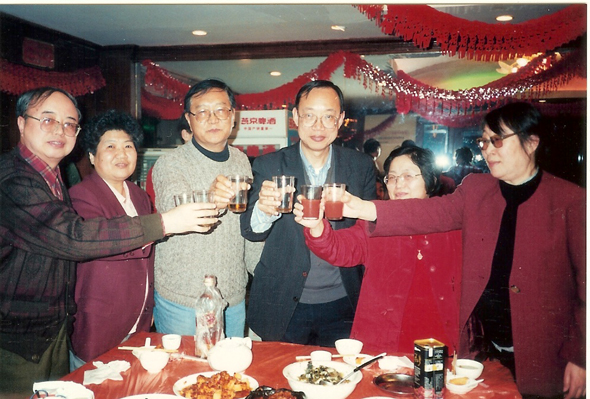
左二为刘秀清,1999 北京
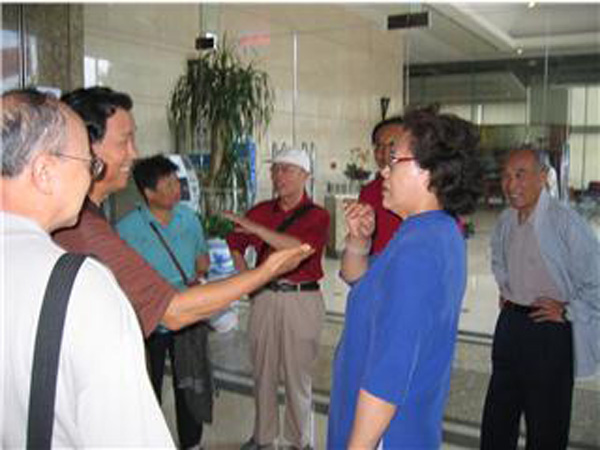
左起张连泰、常耀信、刘秀请、李广然、朱文俊、蔡文美、王陞印
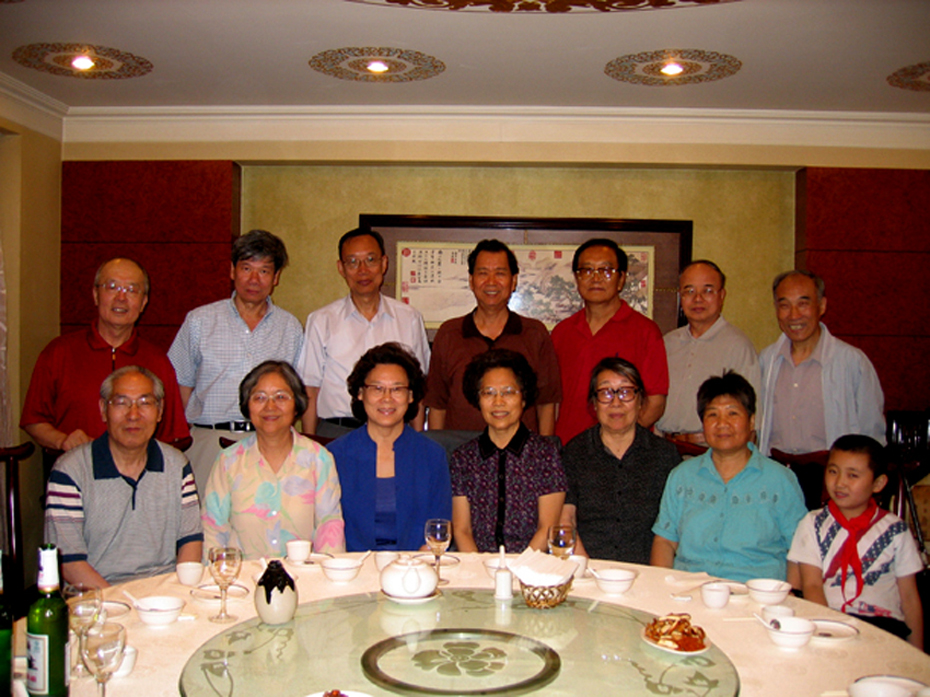
前排右二为刘秀清 2008,北京
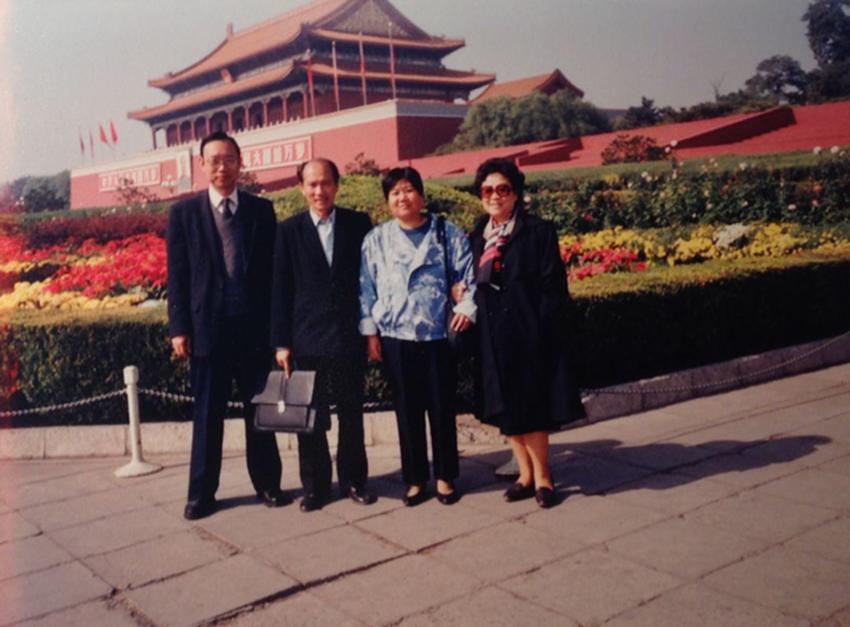
1993-10-16 在北京天安门右侧。左起:李明德 徐基荣 刘秀清 汪莹
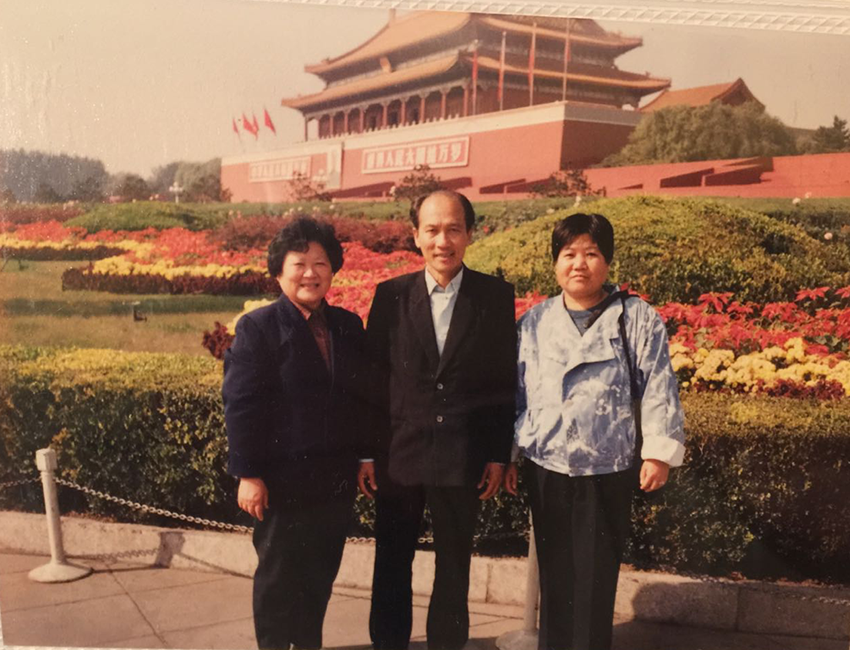
左起: 徐基荣夫人艳玲、徐基荣、 刘秀清
                 
  
|
English Poet Matthew Arnold (1822-1888) |
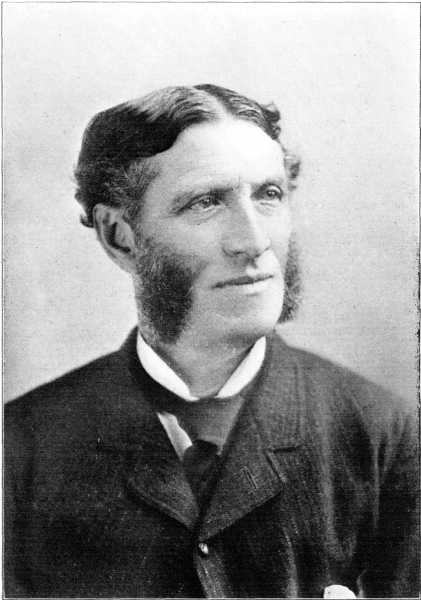
(This work of art is in the public domain.)
Arnold is sometimes called the third great Victorian poet, along with Alfred Tennyson, 1st Baron Tennyson and Robert Browning. Arnold was keenly aware of his place in poetry. In an 1869 letter to his mother, he wrote:
"My poems represent, on the whole, the main movement of mind of the last quarter of a century, and thus they will probably have their day as people become conscious to themselves of what that movement of mind is, and interested in the literary productions which reflect it. It might be fairly urged that I have less poetical sentiment than Tennyson and less intellectual vigour and abundance than Browning; yet because I have perhaps more of a fusion of the two than either of them, and have more regularly applied that fusion to the main line of modern development, I am likely enough to have my turn as they have had theirs."
This is an exceptionally frank, but not unjust, self-assessment. Arnold's poetry continues to have scholarly attention lavished upon it, in part because it seems to furnish such striking evidence for several central aspects of the intellectual history of the nineteenth century, especially the corrosion of "Faith" by "Doubt".
 
Dover Beach
by Matthew Arnold |
|
| |
The sea is calm to-night.
The tide is full, the moon lies fair
Upon the straits;--on the French coast the light
Gleams and is gone; the cliffs of England stand,
Glimmering and vast, out in the tranquil bay.
Come to the window, sweet is the night-air!
Only, from the long line of spray
Where the sea meets the moon-blanch'd land,
Listen! you hear the grating roar
Of pebbles which the waves draw back, and fling,
At their return, up the high strand,
Begin, and cease, and then again begin,
With tremulous cadence slow, and bring
The eternal note of sadness in.
Sophocles long ago
Heard it on the {AE}gean, and it brought
Into his mind the turbid ebb and flow
Of human misery; we
Find also in the sound a thought,
Hearing it by this distant northern sea.
The Sea of Faith
Was once, too, at the full, and round earth's shore
Lay like the folds of a bright girdle furl'd.
But now I only hear
Its melancholy, long, withdrawing roar,
Retreating, to the breath
Of the night-wind, down the vast edges drear
And naked shingles of the world.
Ah, love, let us be true
To one another! for the world, which seems
To lie before us like a land of dreams,
So various, so beautiful, so new,
Hath really neither joy, nor love, nor light,
Nor certitude, nor peace, nor help for pain;
And we are here as on a darkling plain
Swept with confused alarms of struggle and flight,
Where ignorant armies clash by night.
|
|
East London
by Matthew Arnold |
|
| |
'Twas August, and the fierce sun overhead
Smote on the squalid streets of Bethnal Green,
And the pale weaver, through his windows seen
In Spitalfields, looked thrice dispirited.
I met a preacher there I knew, and said:
"Ill and o'erworked, how fare you in this scene?" -
"Bravely!" said he; "for I of late have been
Much cheered with thoughts of Christ, the living bread."
O human soul! as long as thou canst so
Set up a mark of everlasting light,
Above the howling senses' ebb and flow,
To cheer thee, and to right thee if thou roam -
Not with lost toil thou labourest through the night!
Thou mak'st the heaven thou hop'st indeed thy home
|
|
Memorial Verses
by Matthew Arnold |
|
| |
Goethe in Weimar sleeps, and Greece,
Long since, saw Byron's struggle cease.
But one such death remain'd to come;
The last poetic voice is dumb--
We stand to-day by Wordsworth's tomb.
When Byron's eyes were shut in death,
We bow'd our head and held our breath.
He taught us little; but our soul
Had felt him like the thunder's roll.
With shivering heart the strife we saw
Of passion with eternal law;
And yet with reverential awe
We watch'd the fount of fiery life
Which served for that Titanic strife.
When Goethe's death was told, we said:
Sunk, then, is Europe's sagest head.
Physician of the iron age,
Goethe has done his pilgrimage.
He took the suffering human race,
He read each wound, each weakness clear;
And struck his finger on the place,
And said: Thou ailest here, and here!
He look'd on Europe's dying hour
Of fitful dream and feverish power;
His eye plunged down the weltering strife,
The turmoil of expiring life--
He said: The end is everywhere,
Art still has truth, take refuge there!
And he was happy, if to know
Causes of things, and far below
His feet to see the lurid flow
Of terror, and insane distress,
And headlong fate, be happiness.
And Wordsworth!--Ah, pale ghosts, rejoice!
For never has such soothing voice
Been to your shadowy world convey'd,
Since erst, at morn, some wandering shade
Heard the clear song of Orpheus come
Through Hades, and the mournful gloom.
Wordsworth has gone from us--and ye,
Ah, may ye feel his voice as we!
He too upon a wintry clime
Had fallen--on this iron time
Of doubts, disputes, distractions, fears.
He found us when the age had bound
Our souls in its benumbing round;
He spoke, and loosed our heart in tears.
He laid us as we lay at birth
On the cool flowery lap of earth,
Smiles broke from us and we had ease;
The hills were round us, and the breeze
Went o'er the sun-lit fields again;
Our foreheads felt the wind and rain.
Our youth return'd; for there was shed
On spirits that had long been dead,
Spirits dried up and closely furl'd,
The freshness of the early world.
Ah! since dark days still bring to light
Man's prudence and man's fiery might,
Time may restore us in his course
Goethe's sage mind and Byron's force;
But where will Europe's latter hour
Again find Wordsworth's healing power?
Others will teach us how to dare,
And against fear our breast to steel;
Others will strengthen us to bear--
But who, ah! who, will make us feel?
The cloud of mortal destiny,
Others will front it fearlessly--
But who, like him, will put it by?
Keep fresh the grass upon his grave,
O Rotha, with thy living wave!
Sing him thy best! for few or none
Hears thy voice right, now he is gone.
|
|
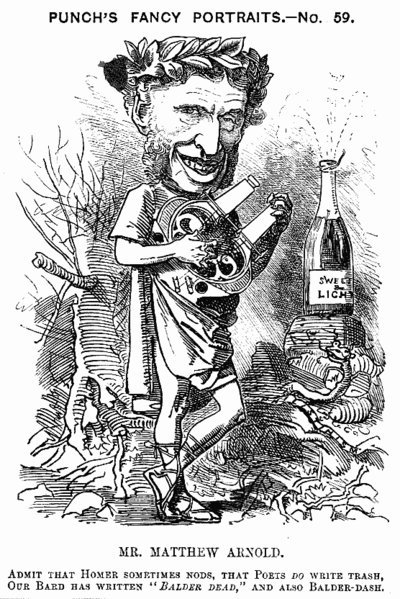
(This work of art is in the public domain.)
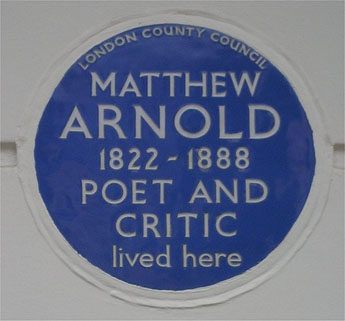
Blue plaque to Matthew Arnold on his house at 2 Chester
Square, London, England. Photo by Oosoom.
(Copied under the terms of the GNU Free Documentation License)
 
|
   
|
.jpg)
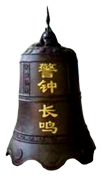
.jpg)
